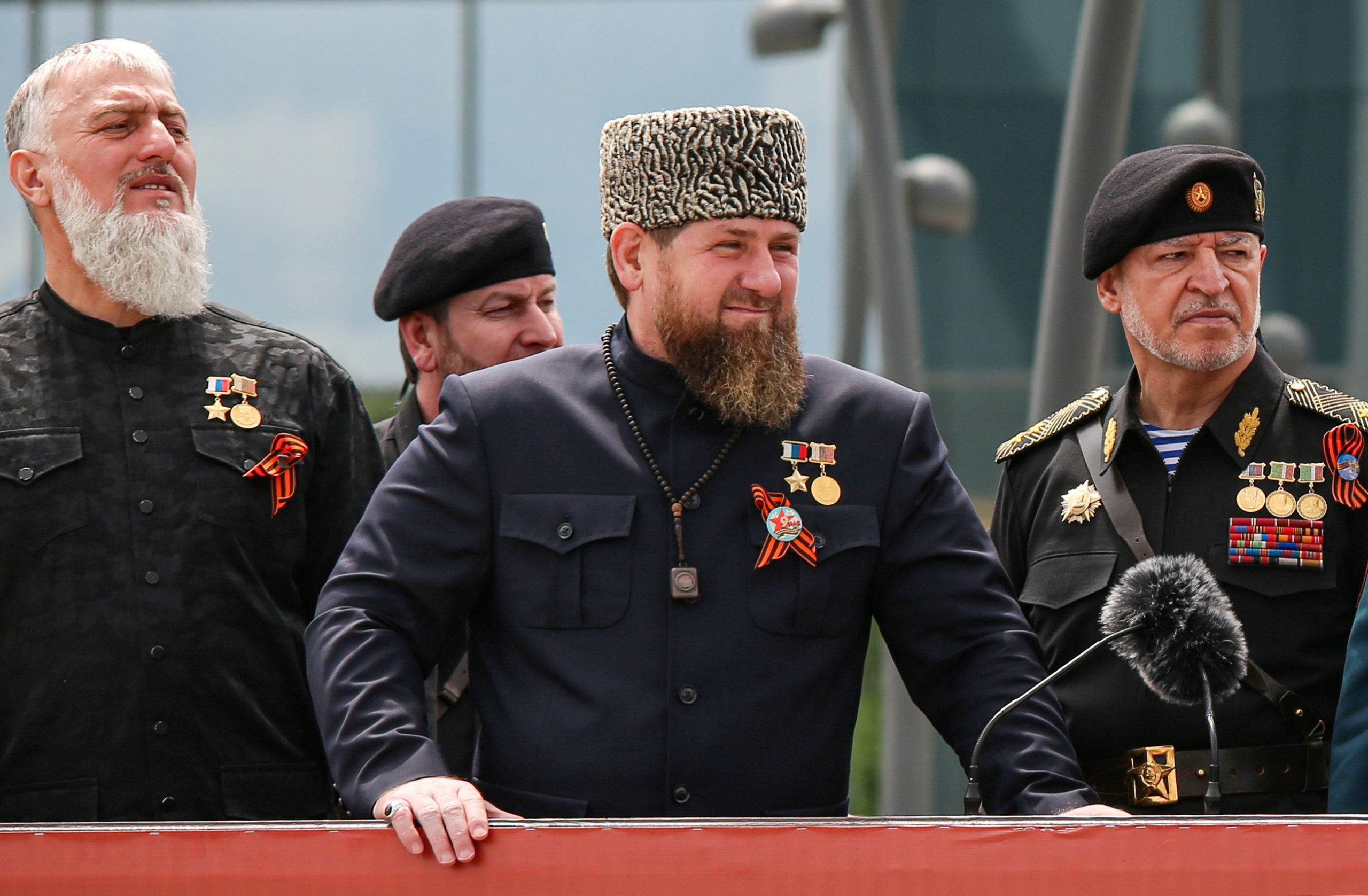Olga Lautman

Russia’s irregular forces — most notoriously the Wagner Group, which musters around 50,000 men — not only form a key element of Russia’s invasion forces in Ukraine, they are increasingly, and unprecedentedly, engaging in verbal battles with the Russian state. This signals an erosion of the social order in Russia and its ultimate consequences are unclear.
The rise of one man in particular, Yevgeny Prigozhin, the Soviet-era convict who helped organize Russian interference in US elections, has caught widespread attention. So far, Prigozhin has had Putin’s support. His Wagner Group has provided plausible deniability for Putin in Syria and Africa, as well as Ukraine.
Another warlord, Ramzan Kadyrov, the notorious Chechen leader, and self-publicist, has also contributed an “impressive number” of soldiers to the war in Ukraine. His ambitions don’t end there — he said on February 19 that he planned to follow Wagner’s example. “When my service to the state is completed, I seriously plan to compete with our dear brother Yevgeny Prigozhin and create a private military company. I think it will all work out.”
Ukraine’s Defense Ministry Intelligence Directorate, citing a decree signed by Russian Prime Minister Mikhail Mishustin, reported that the Russian oil giant Gazprom also has plans to launch a mercenary army. While such a move is illegal under Russia’s constitution, that seems to have had little effect on Wagner Group.
With wartime losses piling up, warlords have criticized the Russian state’s handling of the war, causing unease in some quarters of the Kremlin. Prigozhin has criticized Russia’s military leaders, oligarchs, elites, and even members of Putin’s inner circle; Russian Defense Minister Sergei Shoigu is a notable target. Prigozhin has also been locked in a high-profile dispute with Igor Girkin, a former Federal Security Service (FSB) operative who played a key role in the 2014 annexation of Crimea and invasion of the Donbas. Girkin criticized Prigozhin’s “political ambitions.”
Speculation about Prigozhin’s ultimate political ambitions has had Russia’s intelligence services scrambling to cut him down to size. While Putin remains largely hidden from public view, attending only carefully orchestrated events, and traveling on an armored train, Prigozhin is on the frontlines with his mercenaries. Sergei Markov, a pro-Putin political analyst, told the New York Times officials had instructed Moscow’s talking heads not to “excessively promote Prigozhin and Wagner.”
A power struggle seems underway, with Prigozhin stating on February 21 that the defense ministry’s refusal to arm and equip his men inside Ukraine amounted to treason. He said: “There is simply direct opposition going on which is nothing else but an attempt to destroy Wagner PMC (private military company). This can be equated to high treason now when Wagner PMC are fighting for Bakhmut losing hundreds of their fighters every day.”
Meanwhile, Prigozhin is finding it harder to recruit Russian prisoners to use as cannon fodder — a tactic the Ministry of Defence (MoD) quietly adopted late last fall after struggling to recruit Russians. Around 700,000 Russians, many of them male and subject to conscription fled the country following Putin’s “partial mobilization” call.
Russia’s steady losses in Ukraine — now estimated to be around 200,000 casualties including perhaps 50,000 dead — have left its normally well-oiled propaganda machine in disarray. Divisions within the defense ministry, intelligence services, mercenaries, and elites are on full display. It is not just the warlords who are critical of the state. Each battlefield loss elicits fresh criticism of the MoD’s ineptitude from Russia’s military bloggers, elites, and some in Putin’s inner circle. Girkin derided Russia’s military leadership as “complete cretins” after Russian troops suffered heavy losses in Vuhledar, a coal mining town in the Donetsk region. Such public criticism was unthinkable in the past.
The independent media outlet, Meduza, citing sources, wrote about growing frustrations among the elites: “There is an understanding — we lost the real war. People begin to think about how to live on, what place they would like to take in the future, what bets to make, what to play.”
Meanwhile, Putin’s dream of recreating the Russian empire and dominating Europe is now a shambles. He once described the collapse of the Soviet Union as the “biggest geopolitical catastrophe of the century.” He then went about attempting to rebuild the Russian empire by invading Georgia in 2008, annexing Crimea and occupying parts of eastern Ukraine in 2014, propping up Alexander Lukashenko’s regime in Belarus as it came under threat from pro-democracy protesters in 2020, and conducting malign influence operations across Europe with the aim of keeping countries that were formerly part of the Soviet Union within Russia’s sphere of influence.
Putin also dreamed of replacing the United States as the world’s superpower. He spent decades working toward that goal, most notably by meddling in US elections in 2016 and 2020. Russia “captured” Western elites, politicians, and officials in critical agencies in its bid to undermine the West from within and weaken any response to Russia’s increasingly egregious actions, such as the invasions, illegal annexations, and attempted, and in some cases successful, assassinations of critics on European soil using chemical weapons.
When he invaded Ukraine on February 24, 2022, Putin had calculated that it would quickly collapse as a result of decades of Russian influence operations and the cultivation of political parties inside the country.
Putin miscalculated big time in Ukraine. The war has shaken Russian and unified the West. The big question now is, what happens next in Russia?
No comments:
Post a Comment